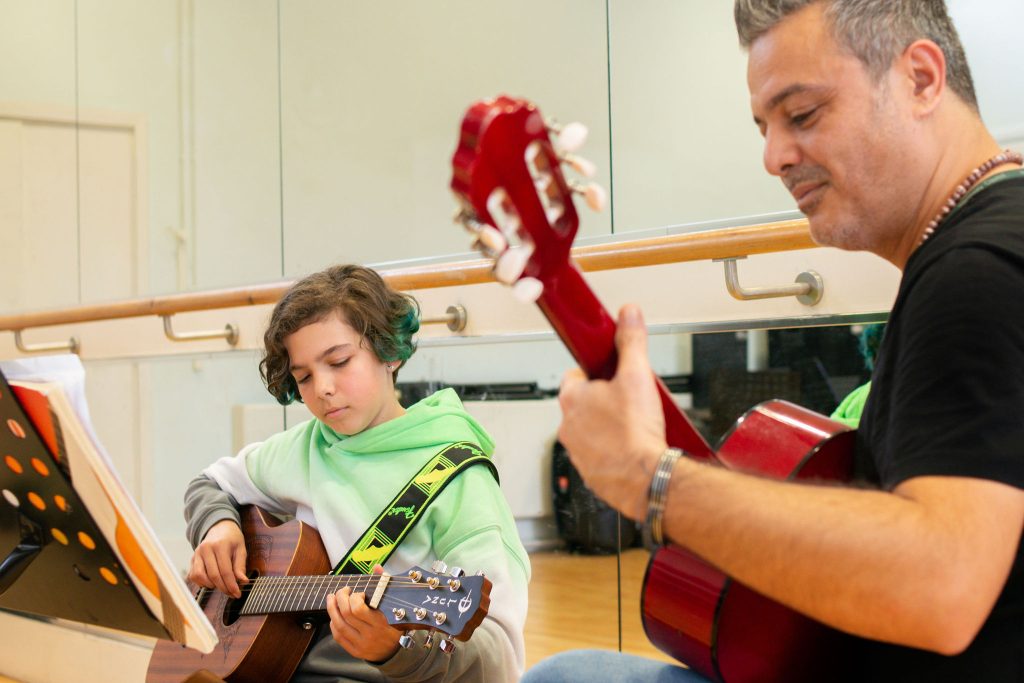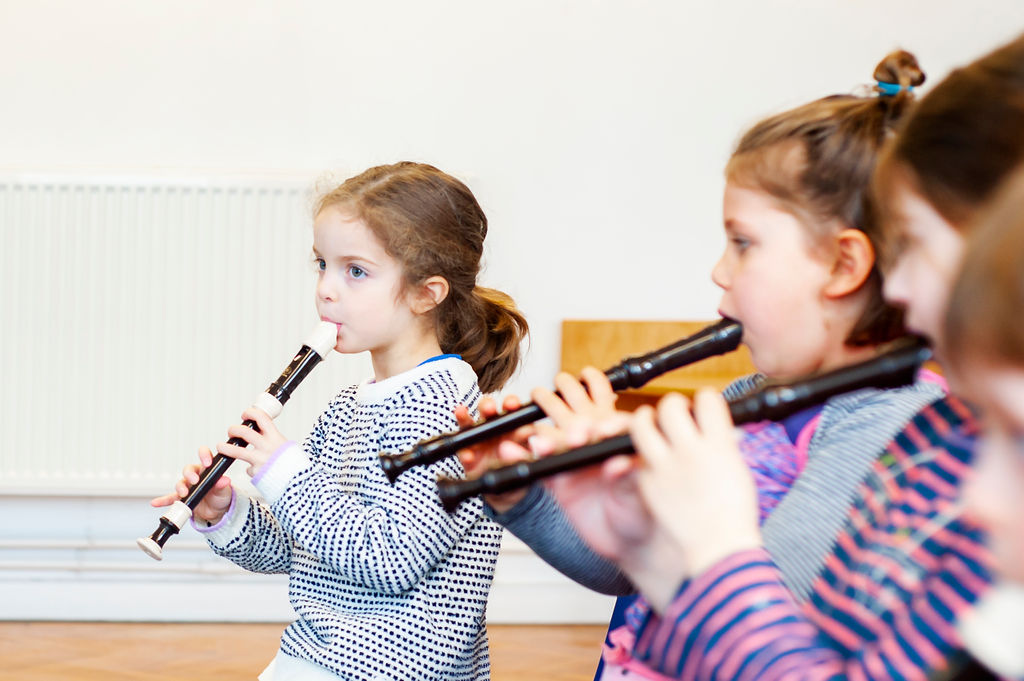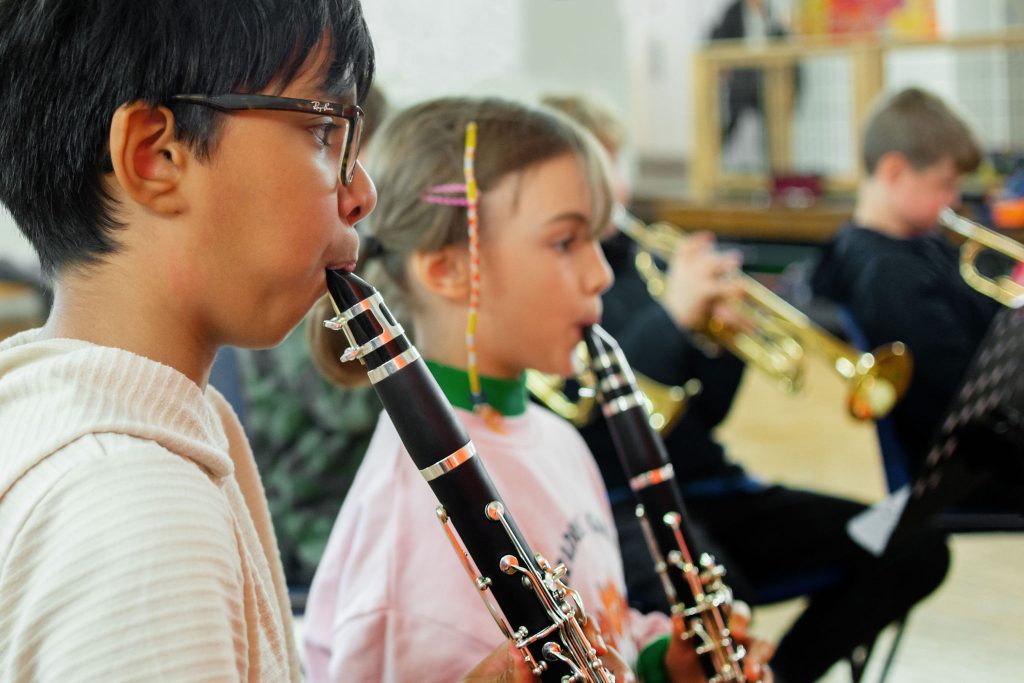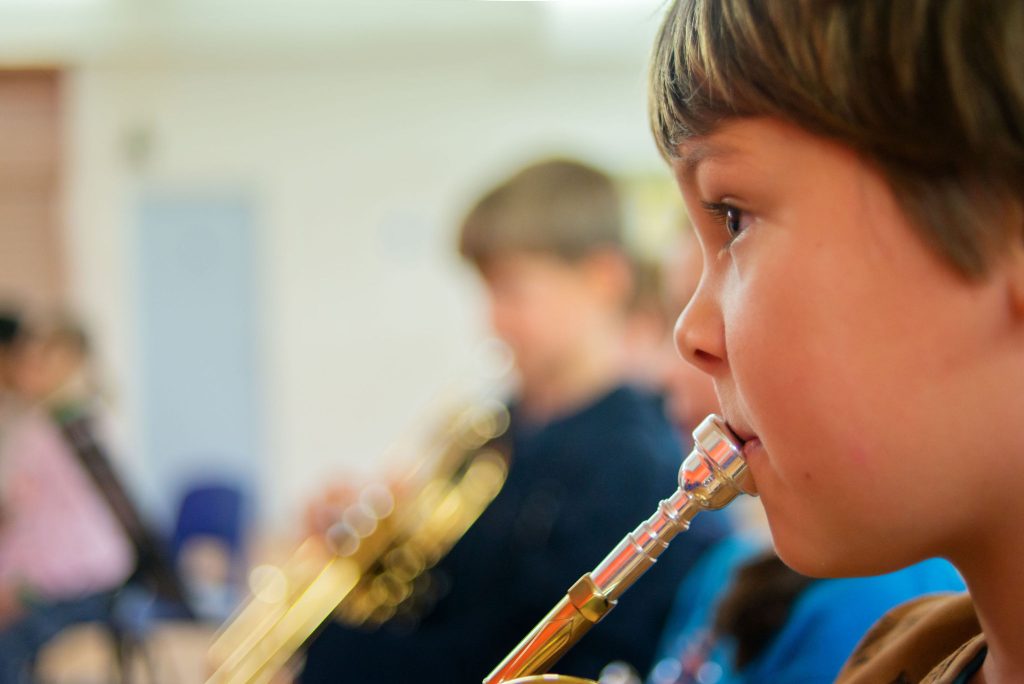We believe passionately in the importance of giving all our children every possible opportunity to develop their love, enjoyment and understanding of music. As well as the intrinsic value of musicality, its important contribution to children’s phonological awareness, language development and reading skills, and its transformative power in personal wellbeing and emotional development, all lie at the heart of our commitment to providing an excellent musical learning experience for our children.
Our music curriculum is carefully designed to ensure that each year children build their musical understanding and skills. This is centred around four key areas of learning:
- Singing
- Listening and Responding
- Instrumental Playing and and Performing
- Composing and Improvising





Our sequenced approach, whereby children regularly practise and improve their skills in these four activities, enables them to expand their understanding of the eight key elements, or building blocks, of musical understanding:
- Pitch – how high or low notes are; how big the ‘jumps’ are between notes
- Duration – pulse (a regular beat), rhythms, long and short sounds
- Texture – single sounds or layers of sounds played together
- Timbre (tarm-br) – describing the different qualities of sounds
- Dynamics – from loud to quiet to silence
- Tempo – speed or pace of music and how it changes
- Structure – how music is arranged, e.g. verse and chorus, call and response
- Notation – how is represented in written or picture form
This deepened understanding in turn progressively improves their skills in singing, listening, playing, improvising and composing.
You can find a more detailed breakdown of our music curriculum map below.
Singing
Singing lies at the heart of music at Coleridge. From the early years through to Year 6, children learn and perform songs in class singing sessions, as part of their music curriculum lessons, and in weekly singing assemblies. Our Year 2 and Junior Choirs perform each year at our Carol Concert, and the Junior Choir has also performed at numerous local events, as well as at the O2 and the Royal Albert Hall. The annual school play provides further choir and solo singing opportunities for our Key Stage 2 children.
Instruments
Children have the opportunity to experiment, play, improvise and compose using both pitched and unpitched percussion instruments in their regular class music lessons. All children in Year 3 also learn the ukulele. In addition to this, through Haringey Music Service, we offer individual instrumental lessons in recorder, guitar, trumpet, flute, violin, cello and French horn. Children who have been learning an instrument for a year or more can join our weekly Tuesday morning orchestra, and our annual school play gives our more talented instrumental players the chance to shine in the accompanying band.
How music works alongside other subjects
Our approach to music at Coleridge is rooted in the intrinsic value of musical understanding and skills in their own right. However, there are explicit and implicit links with a number of other areas of the curriculum.
- English, phonological awareness, language development and early reading
Learning songs and rhymes, and the impact this has on children’s phonological development, puts singing and music at the heart of our early years provision. However, we have early readers at all stages of the school and regular class singing sessions, singing assemblies, and music lessons ensure that all children continue to benefit from singing frequently and having regular exposure to written lyrics of the songs they learn too. In a number of composition and notation activities based around songs, pulse and rhythms, children focus on words and syllables to support both their musical and linguistic understanding. - PSHE
The transformative power of music, and particularly collective singing, is well-known, and this very much informs the importance we place on singing and music-making. Furthermore, many songs learned throughout the school, e.g. Lean On Me, I Wish I Knew How It Would Feel (To Be Free), I’ve Got a Grumpy Face, Sunshine In My Heart, Something Inside So Strong, reference the school’s core values and some of the subject themes addressed in PSHE lessons. - Wider Curriculum
A number of our music curriculum units (e.g. Temples, Tombs and Treasures, The Earth Our Home, Victorians) link explicitly with History and Science units of work. However, the foremost priority of our curriculum design is very much on the development of musical understanding, with such links to other subjects being a secondary benefit rather than a principal consideration. - Black History Month
Year 5 study hip hop and Year 6 study a unit based around a number of songs from different African countries in Autumn 1. All year groups pick at least one song by well-known black artists to sing, listen to, and learn about for Black History Month.